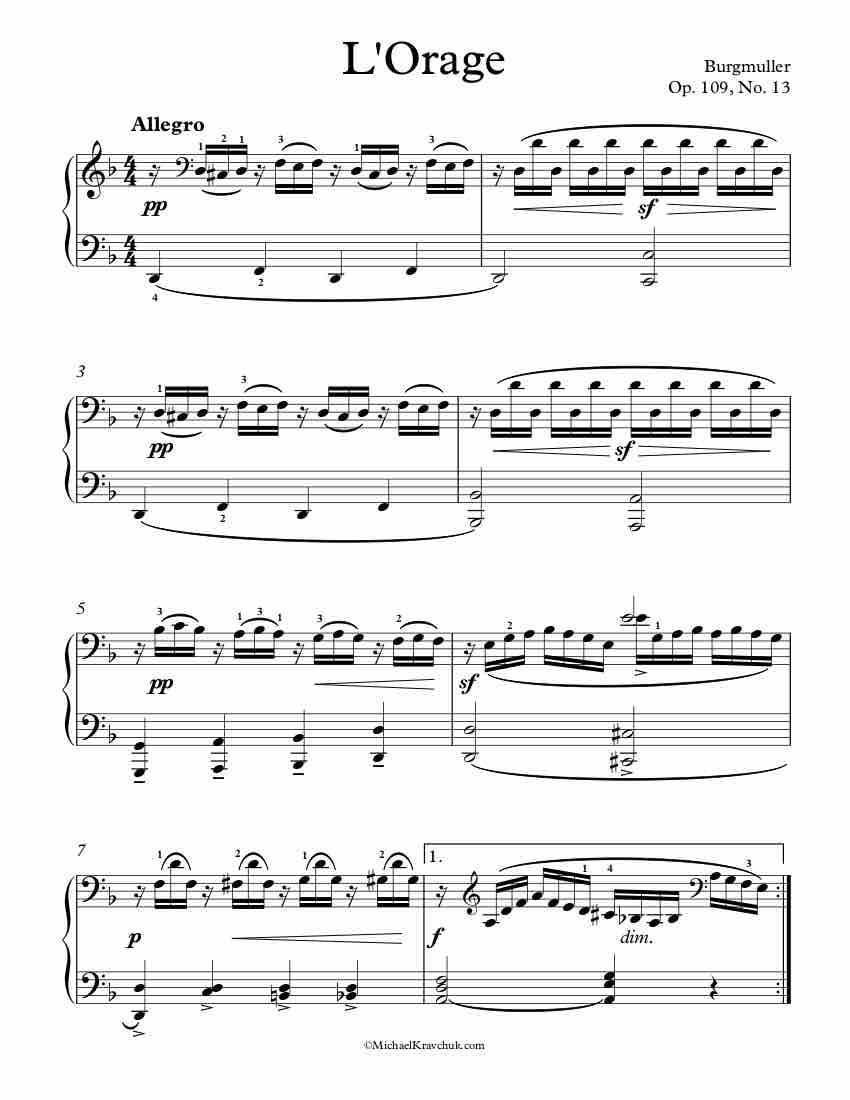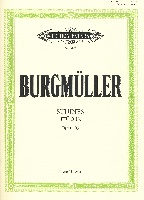Burgmuller Op 109 Pdf To Word
I'm no expert but this is what I have on them:op109:Composed as a sequel to op100 and dedicated to Heller. They are less difficult to the ones op105.

Burgmuller Op 109 Pdf To Word Free
They fit to an upper-intermediate level. They make a fine material to study prior to the preludes and walzes of ChopinNo 1 Confidence: Excellent for teaching voicing of a melody within a single handNo 2 The Pearls: Primarily a study in right-hand scale playingNo 3 The Shepherd's Return: Could serve as fine preparation to one of the easier Chopin waltzesNo 4 The Gypsies: Appropriate for practising in playing chordsNo 5 The Spring: A miniature version of the Chopin Etude op25 no 1No 6 Light-Hearted Maiden: A study in right-hand double notes. Needs a relatively large hand spanNo 7 Lullaby: Voicing of melody over accompanimentNo 8 Agitato: Rapid alternation of 16ths between hands.No 9 Matin Bell: frequent left-hand crossing over right. Some playing of countermelodies in the right. Expressive and lyrical writting.No 10 Velocity: Patterned and rapid right-hand passagework above repeated chord accompaniment. Sounds more difficult than it is.No 11 Serenade: Simulation od strummed chords on a guitar. Grace-notesNo 12 Awakening the Woods: Rapid broken octaves in both handsNo 13 The Storm: Helpful in developing control of soft playing and brilliant passagework.No 14 Lay of the Gondolier: Lyrical right-hand line with broken chords in the leftNo 15 Sylphs: Rapid light right-hand figures.
Looks more difficult on the page than it is.No 16 Parting: Chordal work. Left-hand octaves.No 17 March: Full chordsNo 18 At the Spinning Wheel: A fine study in passage-playingOp 105:Sorry but all I know is that they have no titles as the other 2 sets. Perhaps someone else can shed some light? You are welcomeThe general critical opinion, is that as a composer, his greatest achievements were op.

Burgmuller Op 109 Pdf To Word Online

100, 105 and 109.Although he tried to compose non-pedagogical music, it was considered mostly mediocre and derivative.There are other sets of studies, most notably op. 76 (no.1 - 'Rondoletto' is quite nice) and op.
These are not as well known and may be difficult to find. (Schirmer publishes them).Have a look at this CD where Ramiro Schiavoni has recorde 125 (!) of Burgmuller´s studies:However, his brother, Norbert Burgmuller (1810 – 1836) - talk about a neglected and obscure composer! - was generally considered a musical genius. Friedrich recognized this, and apparently displayed no ill-feelings, eventually becoming a champion of Norbert´s music, working on it, and after Norbert´s death tried with great enthusiasm to get Norbert´s works published.Norbert wrote two symphonies, a piano concerto, four string quartets and various lieder and piano pieces.There is a CD of Norbert´s Piano concerto op.
You can read a review here:His Piano Sonata op. 8 has also been recorded by Adrian Ruiz. Have a look here where you can listen to samples and read a review:His (complete) piano solo pieces (Rhapsody b minor op.13, Polonaise F major op.16 and Waltz E flat wo.op.) are published by Rasmus-Verlag (Dusseldorf).You can listen to them here:Best wishes,Bernhard.